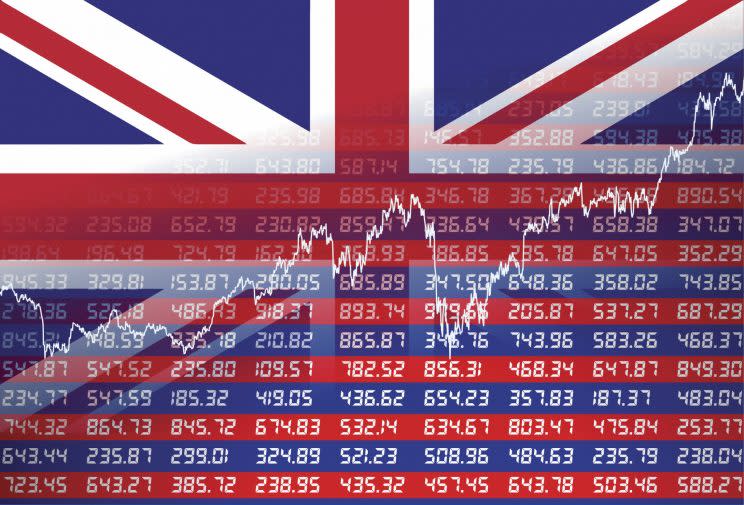Brexit: What you should consider when investing in UK equities

I have been an avid follower of the domestic political scene in the UK for over 50 years and I doubt that I have ever been more depressed than I am with the current parlous situation.
The government called an election for 8 June on the back of a manifesto that must have been drawn up by two seven-year-olds. The uncertainty that manifested itself from the outcome was unsatisfactory in the extreme, leaving the government powerless to implement Brexit smoothly, let alone able to govern with any authority. The country is more divided than it has been since the 1984/5 miners’ strike and without a leader that has solid supportable convictions as to what conservatism means.
MORE: Political instability could see investors could pay the price for mob oratory – David Buik
MORE: Investing in challenger banks: Should you buy into the hype?
Social inequality, despite very low unemployment, leaves the electorate embarrassingly alienated. The Corbynistas wait in the wings, fully geared up to fight and win a snap general election, thanks to millions of well-educated and social media literate voters desperate for change at all cost and regardless of the economic consequences, including recession, rampant unemployment and the implosion of house prices. To them, nothing is worse than the status quo.

Though my prognosis for the future is somewhat melodramatic, it is not without merit. So what about equity markets? How will they fare staring down the gun barrel of inconclusive Brexit negotiations, exacerbated by an overtly weakened Conservative administration and highly tuned EU negotiators of the quality of Barnier and Verhofstadt, who will be merciless and uncompromising in their deliberations?
MORE: UK lawyers register in Ireland in droves amid worries Brexit will hit client business
There are already rumours that the EU’s divorce settlement figure may have been calculated on the back of a cigarette packet. It would appear to have been met with derision, such is the total lack of harmony emanating from the early deliberations. However, it would be folly to think that the EU is anything else but in the driving seat for the initial negotiations. The UK asked to leave the club and the EU will do all in its power to punish the UK. The weight of business/trade is stacked heavily in the favour of the EU.
There are five issues to consider when making investment decisions on UK based companies. Firstly, Simon French, Panmure’s chief economist believes that the currency/dollar trade that was so beneficial to the FTSE 100 in the past year has probably run its race – up 22% since 24th June 2016.

Secondly, could the unpleasant and disingenuous behaviour surrounding Brexit negotiations seriously damage the FTSE 100’s progress in the next year? The answer is probably not. Brexit is probably no more than an unattractive carbuncle on financial society or if you prefer just a sideshow. Mr French goes on to say that he considers the direction of global interest rates, currently in an upward direction in the US and the likelihood of quantitative easing being tapered by main Central banks, particularly in the US and the EU to be of greater significance.
MORE: Dublin and Frankfurt are the main beneficiaries of Brexit so far
Thirdly there is the question of growth in China and the US. Is there sufficient momentum in China’s economy to drive energy and commodities markets? Are there sufficient reforms in the US administration’s plans to deliver 3% to 3.5% GDP growth in the world largest economy over the next few years?
Fourth, so much credence and importance has been attached to Chancellor Merkel’s and President Macron’s plans to reform the German and French economies respectively – very much the engine rooms of the EU’s economy. I have my doubts, despite their commitment to delivering reform, that either leader will be given the authority by their people to effect fundamental labour reform laws. We’ve been here before. President Macron is immensely charismatic, but that is unlikely to be enough to deliver the fatted calf. Also there are the added ingredients of geo-political issues such as the US’s relationship with Russia, North Korea and turmoil in the Middle East to give serious consideration to.
MORE: Ditch ‘second class citizen’ plan or face veto on Brexit deal, Theresa May warned
Finally there is the case of protectionism with particular reference to the US and the EU, as well as nationalistic attitude to trade, business and politics. Were that culture to gather momentum then the effect could be very damaging to global growth.
In the case of the United Kingdom, the FTSE 100 is unlikely to gather a great deal more moss in the months to come, unless sterling was about to fall out of bed, thanks to adverse progress to the Brexit negotiations. The FTSE 250, which is a real barometer of economic activity, has provided a more accurate measurement of sentiment. Since 23 June 2016 it has fallen 2.5%, despite hitting 20,000 in February of this year. With such negative press from the media, politicians and crest-fallen remainers, it is hard to see this index rallying to the cause without M&A activity or an improvement in the UK’s relationship with the EU over Brexit.
David Buik MBE is a market commentator at Panmure Gordon. The companies he has worked for mostly involved financial spread betting. He worked for BGC Partners from 1999 to 2011. He has appeared as a financial pundit on the BBC, Bloomberg Television, CNN International and ABC News (Australia).
Disclaimer: The content on this page does not constitute financial advice and is provided for general information purposes only. Nothing on this page should be regarded as an offer to conduct investment business or to buy/sell any investment.

 Yahoo Finance
Yahoo Finance 
